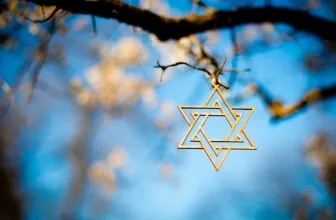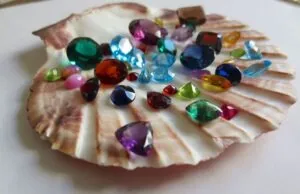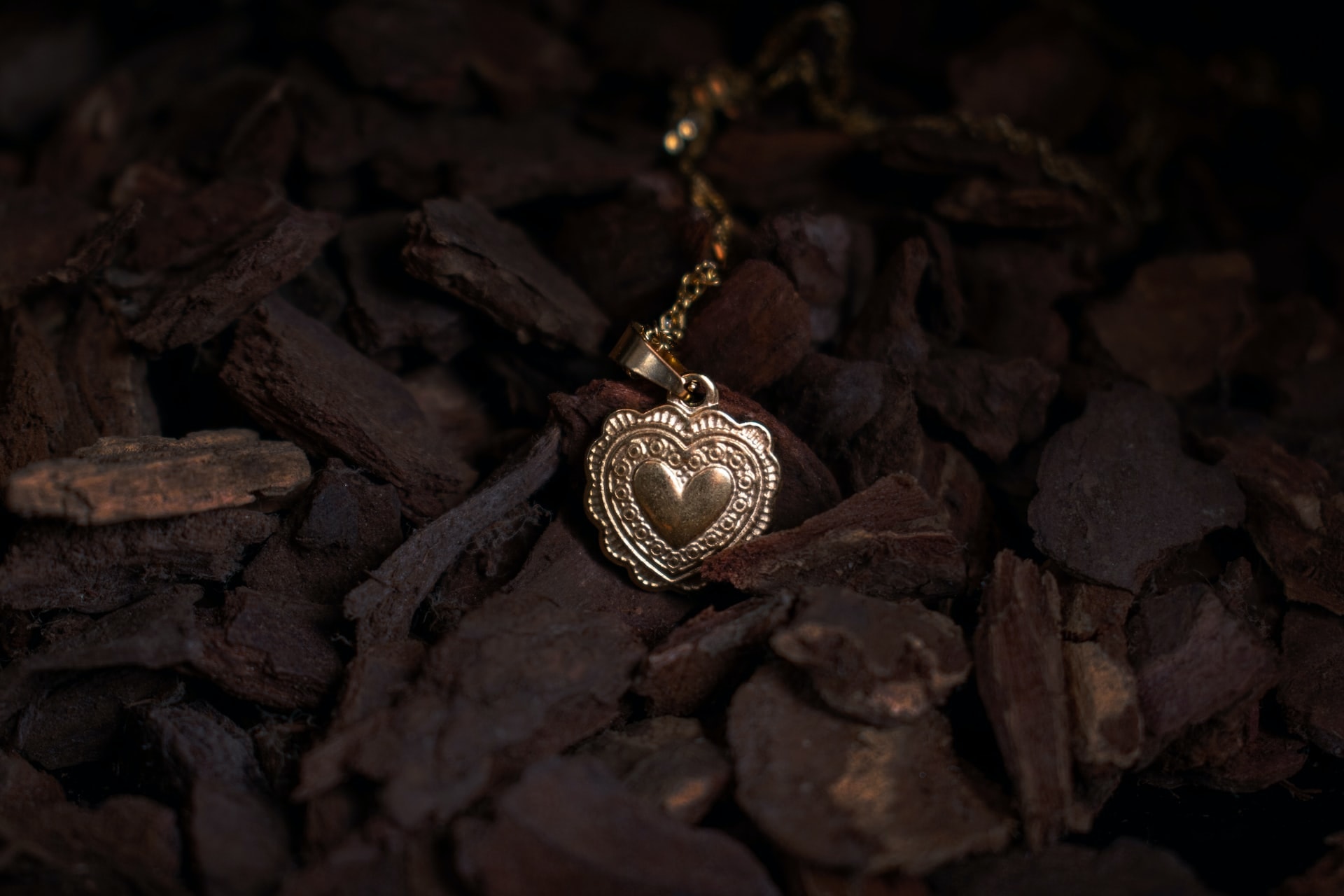
Table of Contents
Jewelry is more than just pretty things we wear. They can tell stories and mean a lot to people. All around the world, different cultures use special symbols in their jewelry to show who they are, what they believe in, and how they feel. In this article, we’re going to talk about 13 special symbols in jewelry from many different places around the world.
List of Popular Symbols in Jewelry
1. Infinity
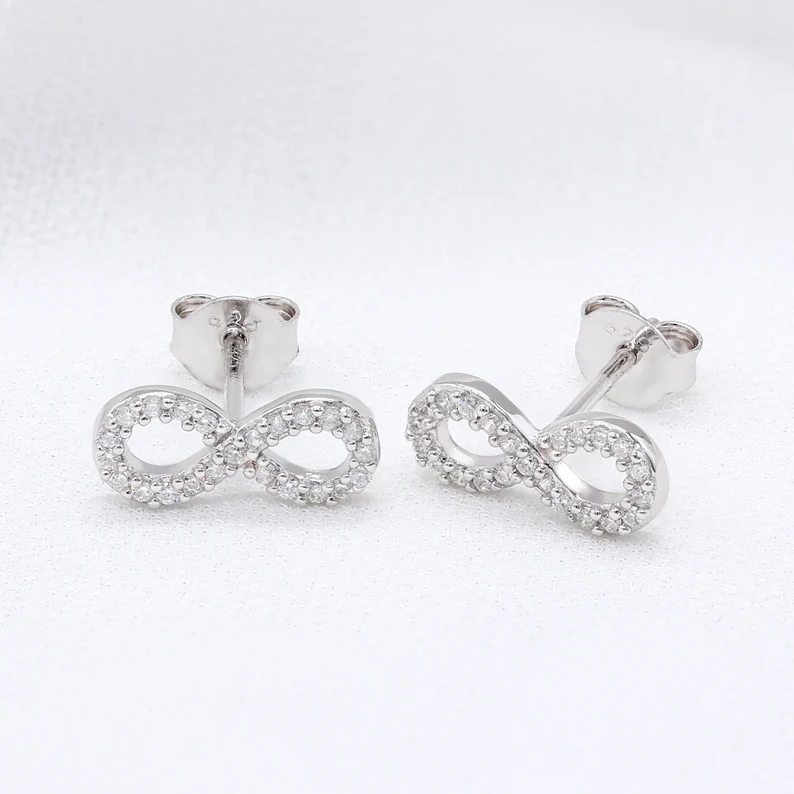
The infinity symbol, essentially a horizontal number 8, was first used mathematically in the 17th century, with origins stretching back further. It makes perfect sense as a jewelry item because its design is self-contained (you could literally trace your finger around its curves forever). This creates a strong association with love-themed ideals, such as eternity and bonding. Being both unified in shape and without sharp edges, it is ideal for both men and women.
2. Heart
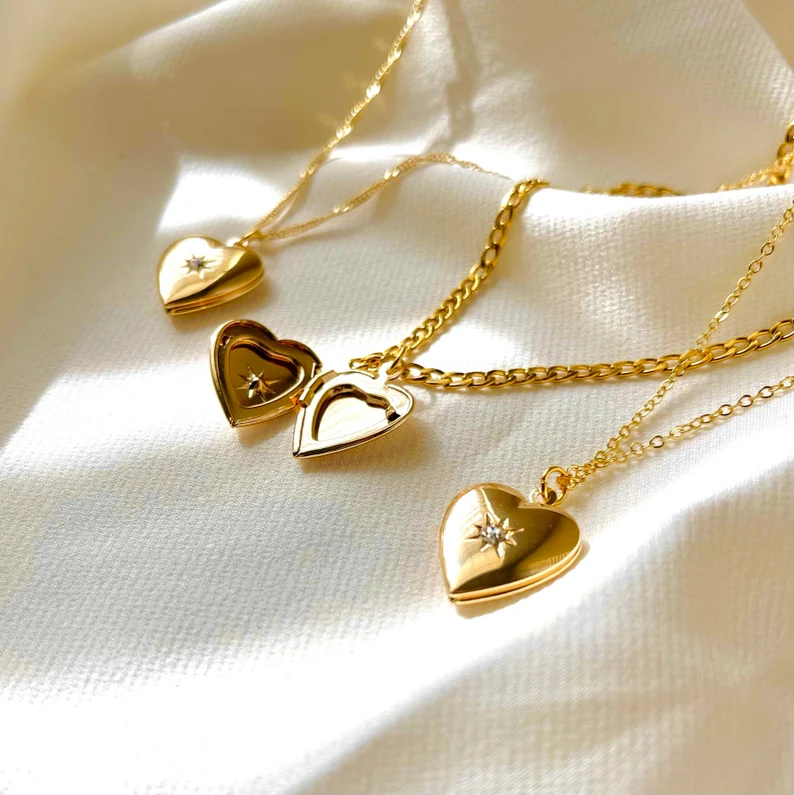
The most famous symbol of them all, the heart symbol – as used as an expression of love – can be traced back to the 15th century and has evolved to become the standard romantic icon (possibly in conjunction with enlightenment ideas of logic and emotions) in emojis, greetings cards, balloons and, of course, jewelry.
While only a casual representation of a real heart, the symbol’s potency comes from its combination of soft, feminine curvature at the top, and pointed singularity at its base. This creates harmony when placed around the neck or on the finger. You can also shoot an arrow right through the middle.
3. Birds
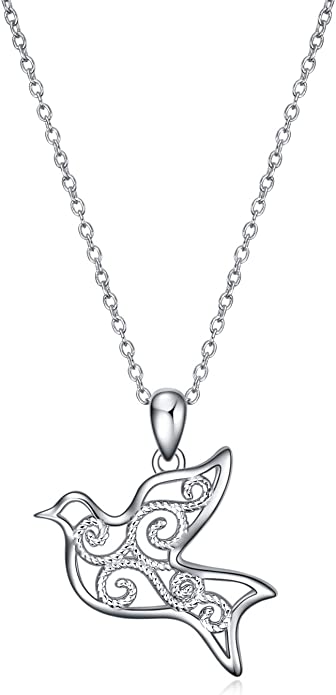
The symbolism of our feathered friends is longstanding and varied, with different cultures and continents interpreting their own native birds in different ways. Birds signify flight and aspiration, whilst the dove especially represents spirituality and peace.
In the West, the dove is a symbol of the holy spirit/life and of love and peace. The phoenix is a symbol of renewal carried over from Greek and Egyptian mythology, whilst swans, swallows, eagles, and robins also have their metaphorical place in our affections. Of course, flight and beauty typify most bird types, which makes them a popular option for jewelry.
4. Hamsa Hand
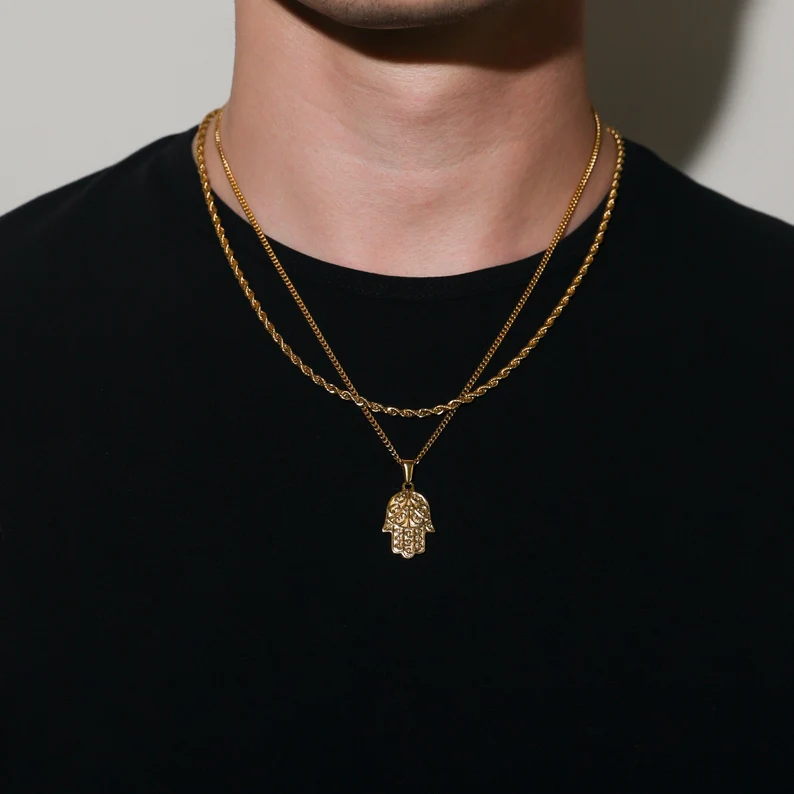
With origins dating back to both ancient Egypt and Biblical Judaism, the Hamsa ‘eye-within-an-open-palm’ has become ubiquitous throughout the world and in many major religions as a symbol for dispelling evil spirits and promoting health and well-being.
As an article of jewelry, it works extremely well in necklace form or – featuring only the eye component – as a ring. The combination of hand and eye makes for a natural metal and embedded stone combination.
5. Ankh
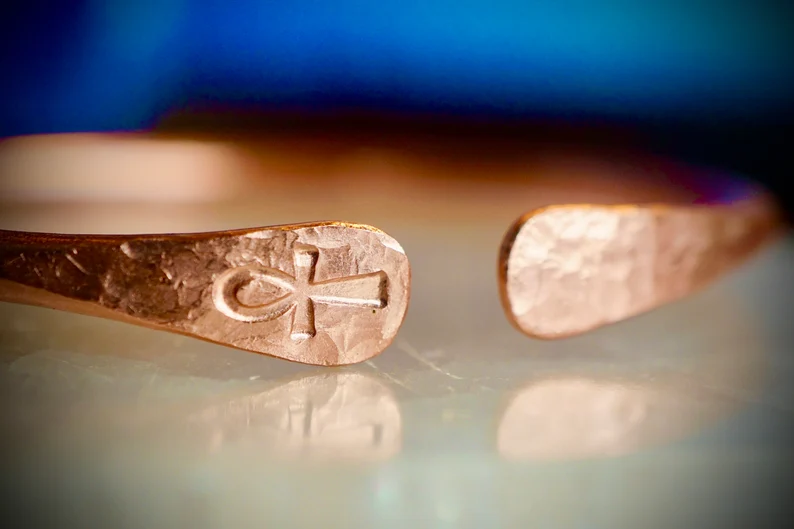
Originating in ancient Egypt, the cross-like symbol is distinct from the Christian crucifix both in origin (it predates the Christian version by 3,000 years) and design. The ankh has a looped element at its head that is, coincidentally, ideal for hanging on a chain or leather band. It is symbolic of life.
6. Cross/Crucifix
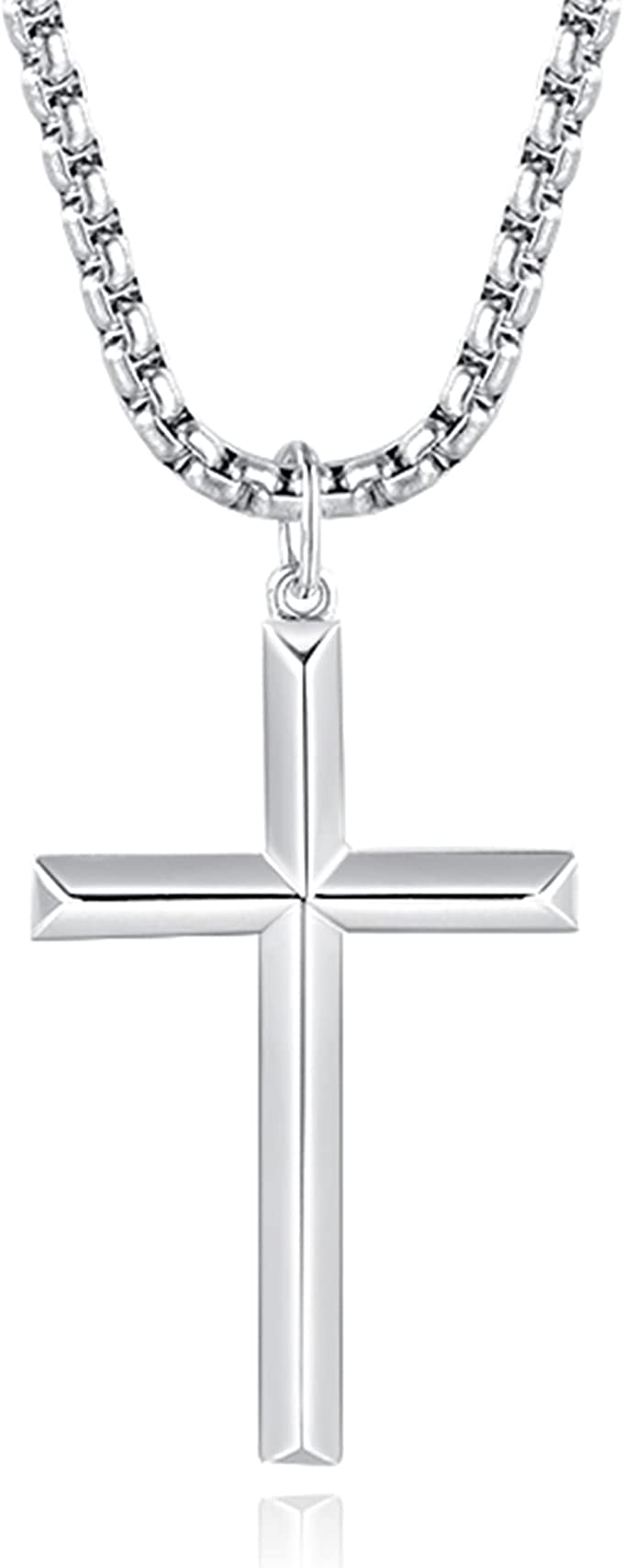
Originally used as a means of execution, the cross has become synonymous with adherence to the Christian faith, as a symbol of the death and resurrection of Jesus Christ. A cross is synonymous with adherence to the Christian faith and is recognized amongst all denominations
Abundant in Western culture and popular as an item of jewelry as an expression of belief across denominations, the cross is one of the most famous icons in the world.
The crucifix is a cross with the image of Jesus on it – some believe it’s irreverent to wear the crucifix, while others find it an expression of their love for Jesus.
7. Feather
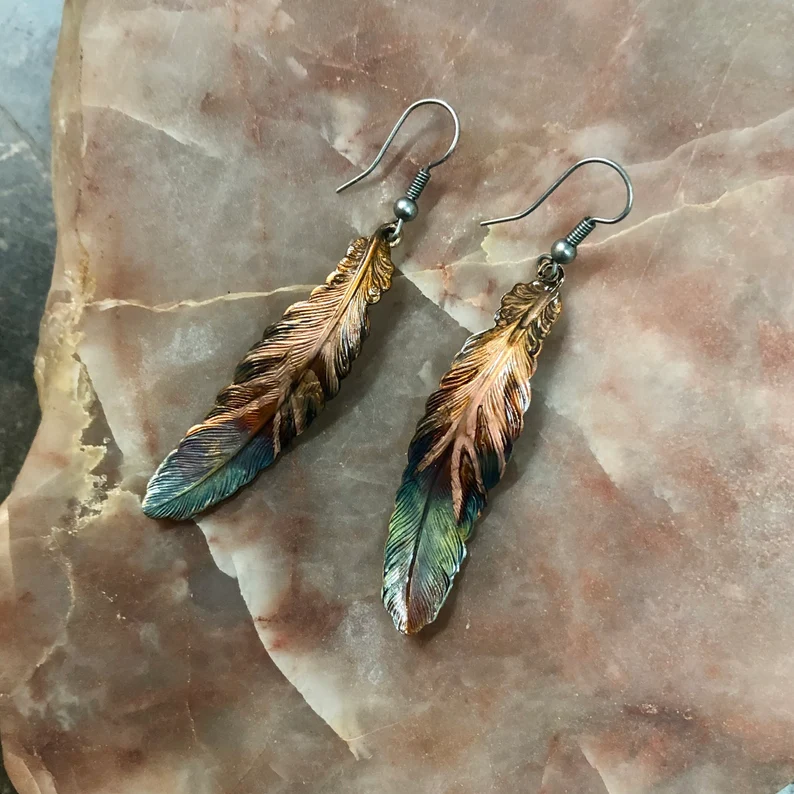
The symbolism of the humble feather is closely associated with the animal from which it comes. Freedom, escape, and spirituality are succinctly consolidated in the feather due to its pleasing shape and association with lightness, agility, and strength. It can also represent angels, whose themes of spiritual protection and eternity are represented in jewelry that signifies birth and death alike.
8. Wings
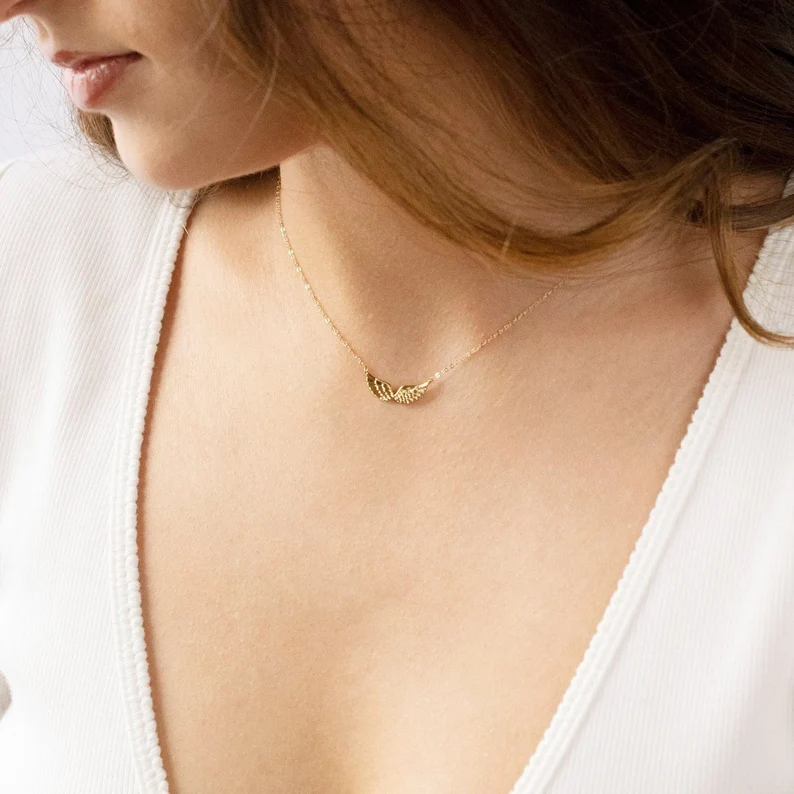
Wings are more strongly associated with angels than a single feather, and with personal or projected ‘godliness’ and self-improvement, as well as being a way to remember a deceased loved one. They can also be a countercultural symbol (think Hell’s Angels) and are symbolic of aeronautical endeavors too.
9. Star
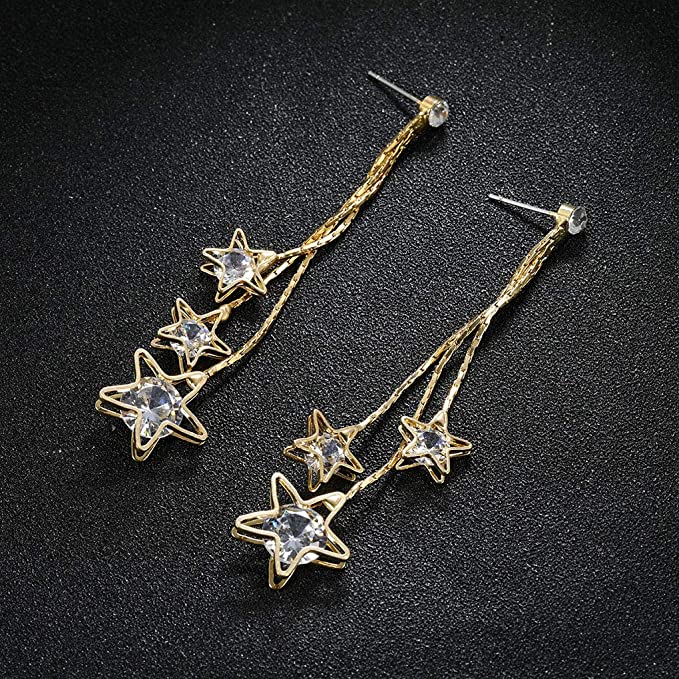
Another extremely popular symbol in modern culture, owing in part to our love affair with movie and music ‘stars’. Originally an astrological symbol, a sign of divine provenance and protection, stars are central to both Hebrew and Islamic faiths, a fact you should consider before wearing one casually.
10. Evil Eye
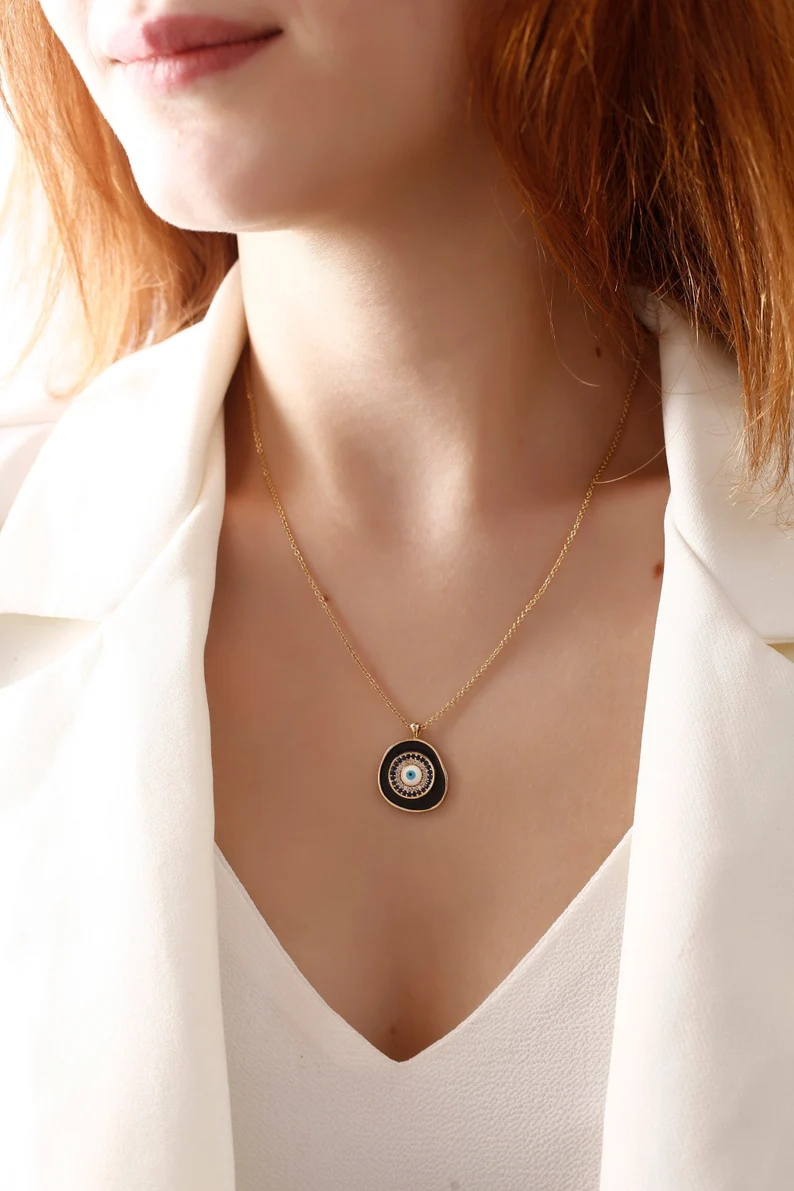
The evil eye symbol comes from the Middle East but there are variations to this concept in many cultures from around the world. This image features four concentric circles comprising an eye symbol, usually in blue, white, and black, which is supposed to repel the evil eye. It is used in jewelry to protect its wearer from (and to ward off) evil spirits.
11. Lotus
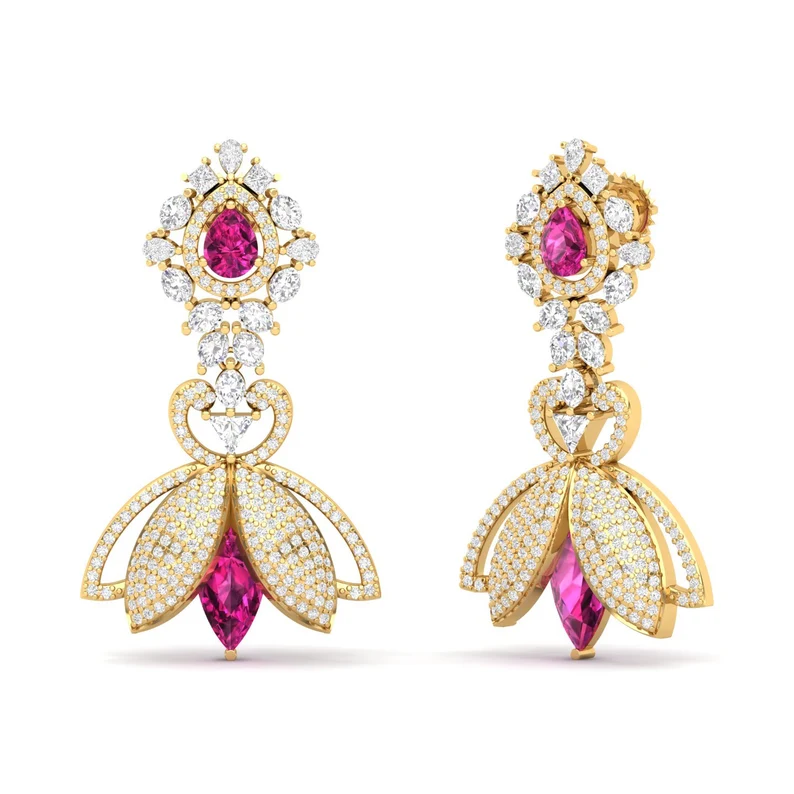
Rising from mud into an object of beauty and cleanliness makes the lotus a striking symbol of purity and growth. Because lotuses return to the murky water each evening and rise the next day, they are also emblematic of the cycle of life and of spiritual, as well as physical, rebirth, and resilience.
12. Peace Sign
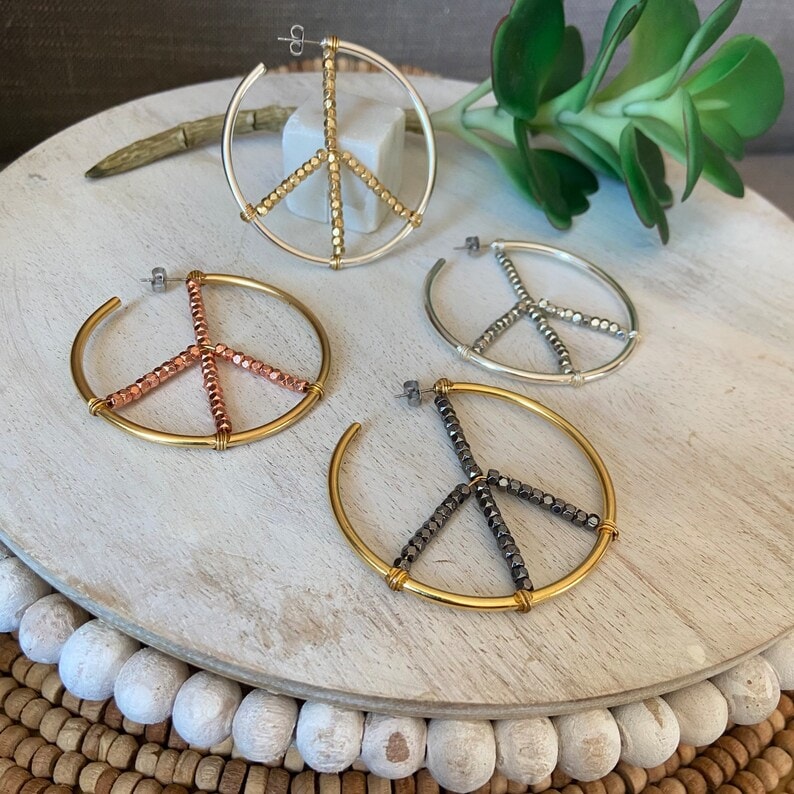
Originally a feature in the early campaign for nuclear disarmament, incorporating semaphore (flag) symbols for the letters N and D, the peace sign was quickly adopted by the counterculture movement in the ’60s (where it was generically associated with peace) and has since become firmly linked with a variety of sustainability and animal welfare movements.
Its circular shape makes it a pleasingly holistic jewelry item, and the most politically potent item on this list. From a symbol of political activism to a general statement of peace, and back again, the peace sign has been a staple symbol of post-nuclear activism
13. Yin Yang
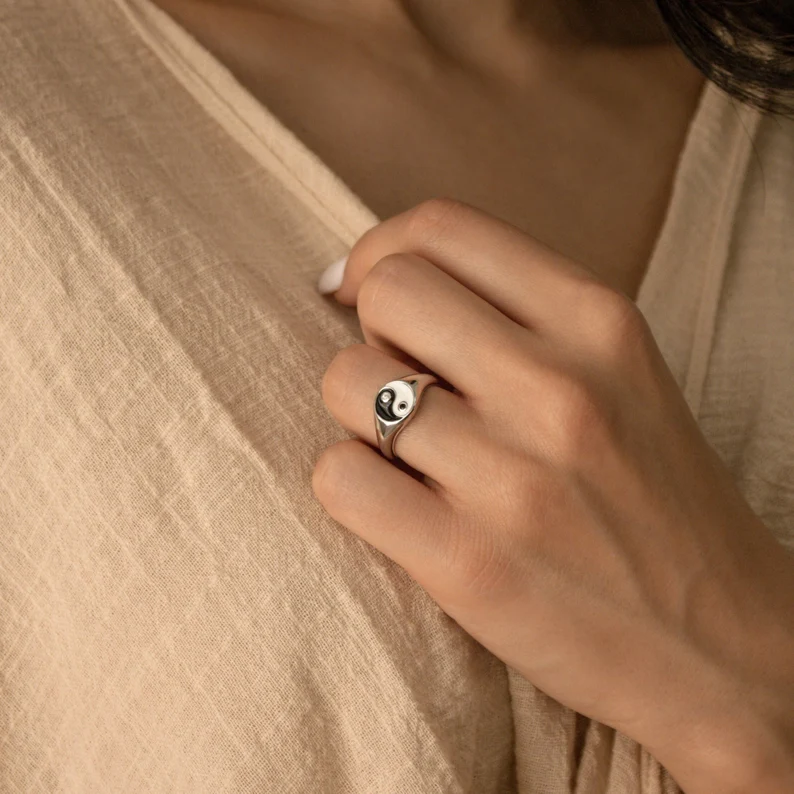
A Chinese philosophical symbol that counterbalances and interrelates opposing forces of good and evil, darkness and light. Owing to its circular shape and symmetrical imagery, the yin-yang makes a powerful and effective jewelry item, alluding to Eastern spirituality without being intrinsically attached to a formal religious view.
What to Know Before Choosing Symbols in Jewelry
There’s a lot of talk about being culturally appropriate when wearing symbols and motifs from other cultures. It does make sense to be sensitive about these things but at the same time, there’s no reason to be afraid to wear something from a different culture (we think). What matters is to understand the meaning of the piece and to wear it with sensitivity.
However, people may make assumptions based on the symbols you choose to wear. If, for example, you choose to wear the cross, be prepared for people to assume that you’re a Christian. In this case, you might choose not to wear the symbol.
Wrapping Up
There is an endless array of symbols that can be turned into impactful and attractive jewelry items. The beauty of symbolic jewelry is that it can communicate powerful and personal meaning to others very quickly and can also act as a discussion point.






